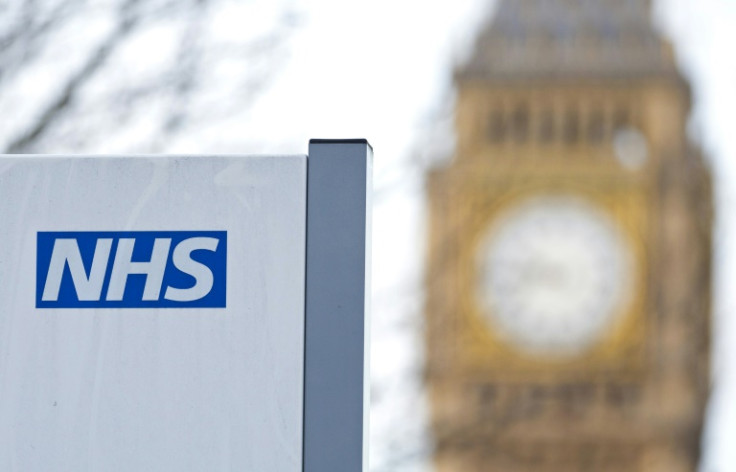New NHS Treatment Offers Hope for Blood Cancer Patients
The new therapy, known as glofitamab or Columvi®, has been approved by both the Medicines and Healthcare Products Regulatory Agency (MHRA) and the National Institute of Health and Care Excellence (NICE).

In a groundbreaking development, the UK's National Health Service (NHS) is set to provide a potentially curative treatment for patients suffering from diffuse large B-cell lymphoma (DLBCL). This aggressive form of blood cancer has left many patients with limited options for treatment.
However, the recent approval of the drug, Glofitamab, also known as Columvi®, by the Medicines and Healthcare Products Regulatory Agency (MHRA) and the National Institute of Health and Care Excellence (NICE), brings hope to hundreds of patients battling this debilitating disease.
DLBCL is a type of non-Hodgkin lymphoma that primarily affects individuals aged 65 and over, with the most common symptom being painless swellings of the glands. In England, approximately 5,500 people are diagnosed with this type of cancer every year.
Previously, the treatment options for DLBCL were limited to combinations of chemotherapy, radiotherapy, bone marrow transplants, and chimeric antigen receptor (CAR) T-cell therapies.
While CAR T therapies have been offered in specialised centres across the country, Glofitamab's approval signifies a significant shift in accessibility, as it can be administered as an intravenous infusion at multiple cancer treatment sites throughout England.
The NHS is expediting the availability of Glofitamab, which will be accessible within weeks for patients who have undergone two or more cancer treatments without achieving full remission. This swift action by the NHS is already demonstrating remarkable results, with patients like John Sharp experiencing life-changing improvements.
Mr Sharp, a 68-year-old from Northumberland, had been diagnosed with low-grade lymphoma in 2001, which later transformed into high-grade lymphoma in 2021. Despite undergoing chemotherapy and CAR-T treatment, his cancer returned.
However, he began Glofitamab treatment through a compassionate access scheme in March 2023, which led to complete remission after just three cycles. Before his treatment, he had been wheelchair-bound, but now he can walk again and fully enjoy his life.
Dr Wendy Osborne, an NHS consultant haematologist specialising in lymphoma at the Freeman Hospital in Newcastle, emphasised the significance of bispecific antibodies like Glofitamab. These antibodies harness a patient's own white blood cells to target and eliminate lymphoma cells.
One arm of the antibody attaches to the cancer cell, while the other binds to the patient's white blood cell, activating the patient's immune system to destroy the cancer cell without the need for chemotherapy. Patients often experience fewer side effects and maintain a higher quality of life during outpatient-based treatment.
The approval of Glofitamab by the MHRA and NICE is a testament to the diligent work of NHS staff, who strive to provide cutting-edge treatments to patients living with advanced and aggressive forms of blood cancer. The drug represents a major leap forward in the fight against DLBCL, offering an alternative option for patients who may not have responded to CAR T therapy or prefer to receive Glofitamab closer to their homes.
Amanda Pritchard, the NHS Chief Executive, lauded this development as incredible news for those suffering from advanced blood cancer, highlighting its life-changing impact on patients like John Sharp. She also expressed her satisfaction in seeing patients regain their mobility and family time, thanks to this groundbreaking treatment.
NHS England will use the Cancer Drugs Fund (CDF) to provide fast-tracked access to Glofitamab, bypassing the routine commissioning process. The CDF has been instrumental in providing access to more than 100 drugs across over 250 indications for over 93,000 patients since its inception in July 2016.
The fund has played a crucial role in facilitating access to innovative treatments that have the potential to extend and improve the lives of patients with various forms of cancer.
Professor Peter Clark, NHS England's Cancer Drug's Fund Lead, stressed that the approval of Glofitamab is excellent news for individuals grappling with advanced and aggressive blood cancer. The drug not only offers a potentially life-saving option for patients who have not responded to CAR T therapy but also provides a closer-to-home alternative for CAR T-eligible patients.
Helen Knight, director of medicines evaluation at NICE, underlined the importance of swiftly getting the best care to patients facing aggressive blood cancer. The faster patients can access effective treatment, the better their chances of living longer and improving their quality of life.
The independent committee at NICE has found that Glofitamab is clinically and cost-effective for treating advanced B-cell lymphoma, and NHS England is committed to making it available to patients expeditiously.
Pia Ballschmieter, UK Haematology Lead at Roche Products Limited, expressed her delight at the approval of Glofitamab, highlighting the desperate need for additional treatment options for individuals with diffuse large B-cell lymphoma.
She emphasised that this achievement was only possible through the collaboration and support of various stakeholders in the medical community, and Roche remains dedicated to ensuring that this groundbreaking treatment is accessible across the entire UK.
The approval of Glofitamab marks a significant milestone in the fight against diffuse large B-cell lymphoma and offers hope to countless patients battling this aggressive form of blood cancer. As the NHS prepares to make this curative treatment available to those in need, it reaffirms its commitment to providing cutting-edge healthcare and improving the quality of life for individuals facing life-threatening diseases.
© Copyright IBTimes 2025. All rights reserved.






















